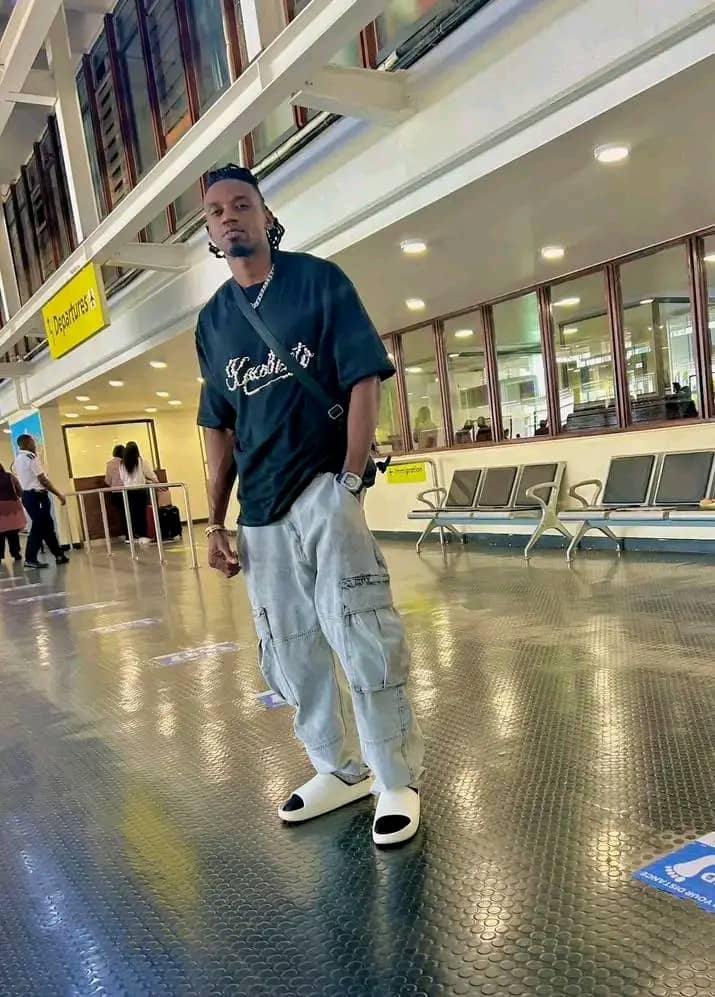By Burnett Munthali
In a significant audio release made available to the public on Sunday, February 2nd, 2025, Comrade Edwards Kambanje confirmed that preparations for demonstrations and vigils against the Malawi Communications Regulatory Authority (MACRA) are at an advanced stage. The planned protests, which will take place both in Lilongwe and Mzuzu, are in response to the controversial procurement of a surveillance machine by the communications regulatory body. According to Kambanje, the purpose of the demonstrations is to verify whether MACRA is still intent on purchasing the controversial technology, or if it has already proceeded with the purchase.
Kambanje, who has been vocal on various national issues, emphasized in his audio release that MACRA had misled the public when they initially stated that the procurement of the surveillance machine would cost around 1.5 million US dollars, equivalent to 4.5 billion Malawian kwacha. This figure, according to Kambanje, is part of a broader argument that such a procurement is highly problematic given the current economic challenges facing Malawi.
The country is grappling with a severe shortage of foreign exchange, fuel, and essential goods such as medicine and educational materials in public schools. In light of these struggles, Kambanje argued that the government’s priorities should be directed toward addressing these critical issues rather than spending vast sums of money on surveillance technology. He described the purchase as a misplaced priority, which should be halted immediately.
One of the main points of contention in Kambanje’s release is the lack of consultation surrounding the procurement decision. He revealed that MACRA did not involve key stakeholders, including the Malawi Media Council, the Malawi Human Rights Commission, and a cross-section of concerned citizens, in the discussion before deciding to purchase the technology. Kambanje expressed his belief that the acquisition of this surveillance equipment could have harmful implications for Malawi’s democracy, especially given the way similar technologies have been used in other countries to suppress citizens’ freedom of expression and stifle dissent.
The concern is that this technology could be used to infringe upon the democratic rights of the Malawian people by monitoring and limiting their ability to speak freely, an issue that has raised alarms within civil society. The argument made by Kambanje and his supporters is that this surveillance system could become a tool for silencing critical voices and dissent, which would be a direct threat to the nation’s democratic principles.
Kambanje also noted that the timing of the procurement is particularly troubling. At a time when the nation is struggling with economic hardships, it is difficult to justify the expenditure on such a machine, especially when the focus should be on stabilizing the economy and addressing the basic needs of the population. The frustration surrounding this issue has sparked a strong desire for public action, and Kambanje has urged all Malawians to join the upcoming demonstrations and vigils.
The demonstrations are set to take place on February 13th, 2025, at MACRA offices in Lilongwe and Mzuzu. Kambanje clarified that the intention of the protests is not to ask for permission from the district commissioners but simply to notify them of the action. The aim, he said, is to ensure that the voices of the people are heard and that MACRA understands the discontent that is brewing around this issue. The protests are expected to be peaceful, and the primary objective is to raise awareness and put pressure on the regulatory authority to rethink the purchase of the surveillance machine.
In his call to action, Kambanje urged the Malawian public to come together and stand up for their democratic rights. He encouraged everyone to join the demonstrations, not only to voice their concerns over the procurement but also to make it clear to those in power that the people of Malawi are not satisfied with such decisions being made without proper consultation or consideration of the nation’s current priorities. The message, as Kambanje reiterated, is clear: the people of Malawi want to ensure that their rights are not trampled on, and they will not remain silent in the face of what they perceive to be an unjust and unnecessary expenditure.
As the planned demonstrations draw closer, the issue of surveillance technology and its potential impact on democracy is expected to continue to dominate the public discourse. The outcome of this debate could have significant implications for the future of governance in Malawi, especially when it comes to the balance between national security and the protection of citizens’ rights.
In conclusion, Comrade Edwards Kambanje’s confirmation of the upcoming demonstrations reflects growing public dissatisfaction with the Malawi Communications Regulatory Authority’s procurement decision. The lack of consultation with stakeholders, the timing of the purchase, and the potential for the surveillance technology to infringe upon the democratic freedoms of the Malawian people have sparked a call to action. With the demonstrations set for February 13th, 2025, all eyes will be on the government and MACRA to see how they respond to the growing pressure from the public. Will they reconsider their decision, or will the people of Malawi have to take to the streets to make their voices heard? The answer to this question will shape the future of Malawi’s democratic principles and its commitment to serving the interests of its citizens.





